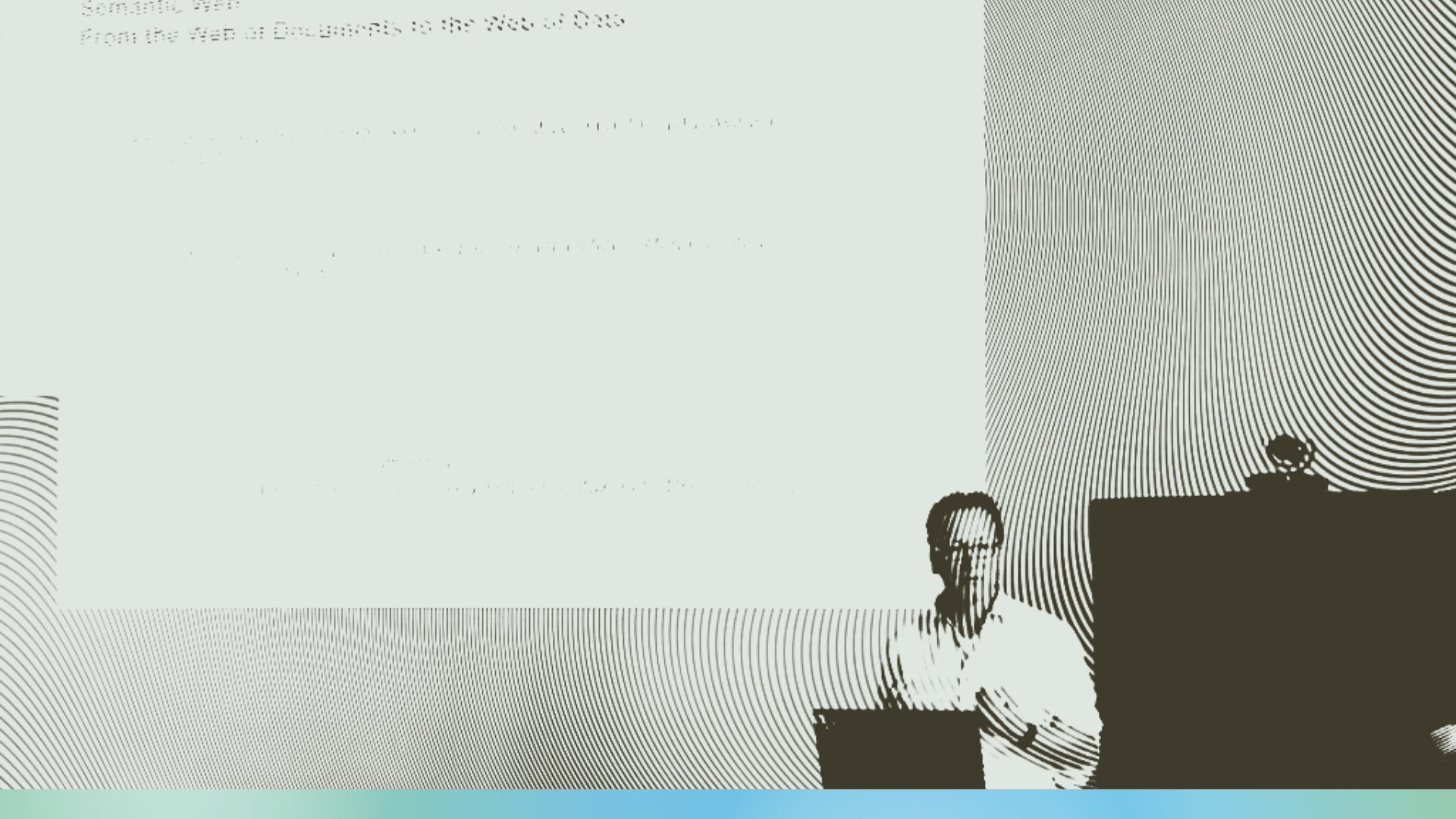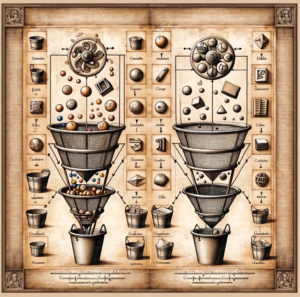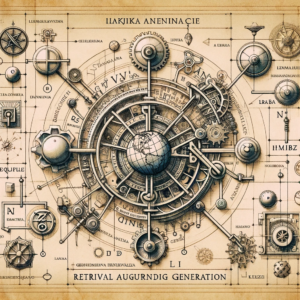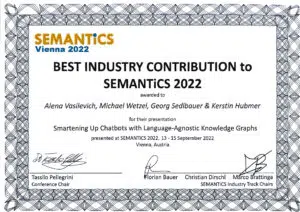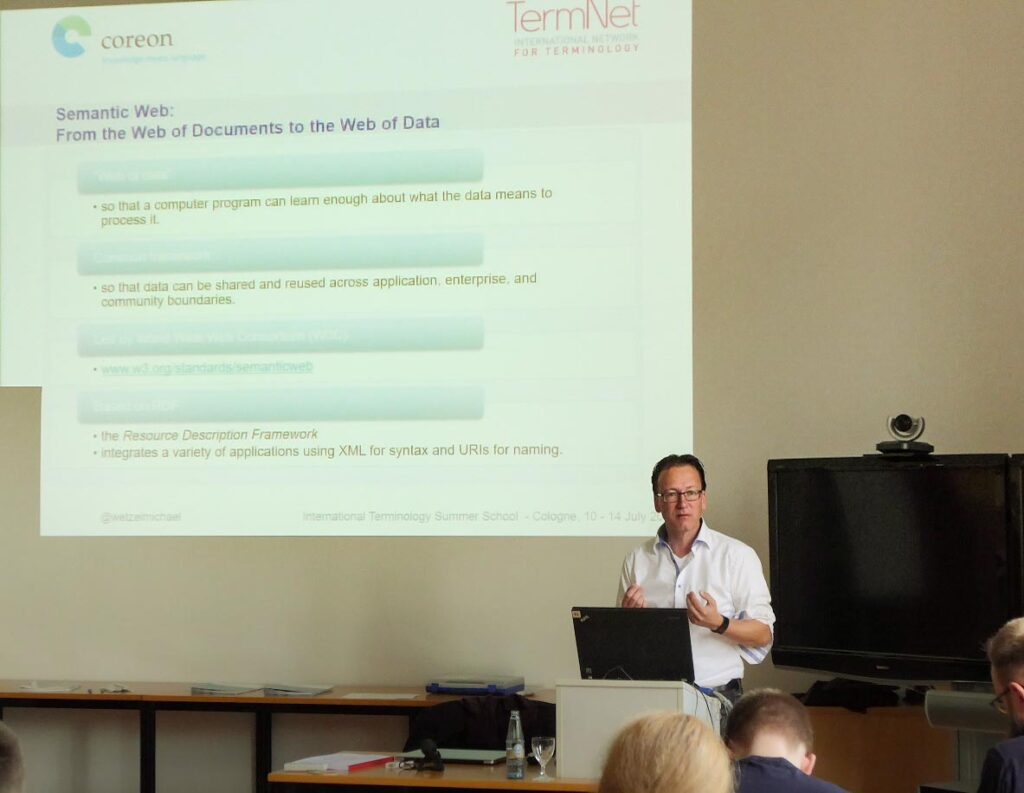
A Review of Summer Events
We would like to share some impressions, from a ‘multilingual knowledge’ perspective, of recent events and conferences. The interesting common denominators were the following themes: how can we leverage and deploy terminology assets in other business processes, and how can we deploy the valuable knowledge in terminology assets to support AI, Machine Learning, Internet of Things, and Industry 4.0?
Coreon Innovation Seminar
The Future of Human Expert Knowledge
Experts in machine learning and industry consultants gathered in Berlin to discuss and brainstorm about the opportunities Coreon provides for the diverse fields they work in. The Coreon use cases presented were: Cross-border e-commerce, AI expert know-how for knowledge-heavy applications, and EU Institutions and interoperability. The event was by personal invitation only and was a huge success. We look forward to repeating it soon! Please click here if you would like to be invited next time.
ILKR 2017: Industry 4.0 meets Language and Knowledge Resources
The first trip brought us to Vienna to the Austrian Standards Institute. The ILKR 2017 took place just ahead of the ISO TC37 annual meeting. As its title suggests, ILKR tackles the question how multilingual knowledge resources enable Industry 4.0. Thus many presentations explored the possibilities around multilingual knowledge management, knowledge transfer, and new business models.
No Industry 4.0 without Semantics
Our contribution illustrated why the Internet of Things and Industry 4.0 need semantics. When hardware devices speak to each other, they interoperate. This requires a mutual understanding of what they actually do, like “I measure temperature.

What do you measure?” The answer is in the semantic of the devices’ metadata. We explained how Multilingual Knowledge Systems (MKS) resolve this challenge and how they facilitate interoperability. And how existing terminologies, taxonomies, and ontologies can be re-purposed to become an MKS.
ILKR was followed by a pretty exciting workshop on eCl@ss and Multilingual Product Master Data Management. It had a particular focus on how e-procurement processes benefit from classifications and knowledge systems.
TSS 2017: Terminology Summer School
This year back in Cologne, the TSS is a five day course that attracts participants worldwide who look for a kick-start in terminology and knowledge resource management. During the first 3 days, TSS usually hovers around the fundamentals of terminology management and its role in business processes. Then we were invited to give two presentations:
- Terminologies and other Knowledge Organization Systems (KOS): What is a KOS, what are its benefits, typical examples, the role it plays in the Semantic Web? What is the difference between a classification, a taxonomy, a thesaurus, and an ontology?
- Knowledge meets Language: Multilingual Concept Maps: How Coreon is a fusion of terminology with taxonomy / ontology, what benefits organizations enjoy by deploying Multilingual Knowledge Systems
Coreon is proud to be a regular sponsor of TSS, and we look forward to next year, then again in Vienna (9-13 July 2018).
Terminology – Ontology Round Table
Mid-August we were invited to a one day workshop on touch-points between terminology and ontology data and science. It took place at the HS Karlsruhe, sponsored by DIT, and organized by Petra Drewer, Francois Massion, and Donatella Pulitano. The workshop benefited from a valuable mix of participants: academic researchers from the terminology and ontology world, industry and institutional representatives (SAP, DIN, Deutsche Bahn …), and tool vendors. Its goal was to find commonalities and differences between the two disciplines. As a provider of a unified solution we contributed to the workshop by illustrating how Coreon customers benefit from a fusion of terminology with ontology. Experts confirmed our claim that humanly curated resources, i.e. MKS, are indispensable to make Machine Learning work for less resourced domains and languages.
We recommend Petra’s and Francois’ presentation at the upcoming tekom conference on exactly that topic, Wed, 25 Oct, 11:15: Why Artificial Intelligence requires intelligent terminologies (and terminologists)!
See Coreon live this Autumn 2017
And of course, we’d be happy to meet you on upcoming events this autumn:
- LT Industry Summit, 9-11 Oct, Brussels
Meet Jochen Hummel, Coreon CEO and Chairman of the Board of LT Innovate at the event. Do not miss the opening keynote by Marija Gabriel, Commissioner for Digital Economy and Society, and Jochen’s panel session “Artificial Intelligence: Hype or Reality?” on Oct 10, 9am. - tekom / tcworld, 24-26 Oct, Stuttgart
Find us in the large hall C2, booth 2/G04 together with our partner company Semantix.
We are proud to present recent highlights, such as brand new filtering capabilities and inline formatting! Learn how Multilingual Knowledge Systems boost AI and Machine Learning solutions and how they make the Internet of Things and Industry 4.0 work. Join us for a product demo Tuesday afternoon, 14:45 room C10.1.
Happy networking!
